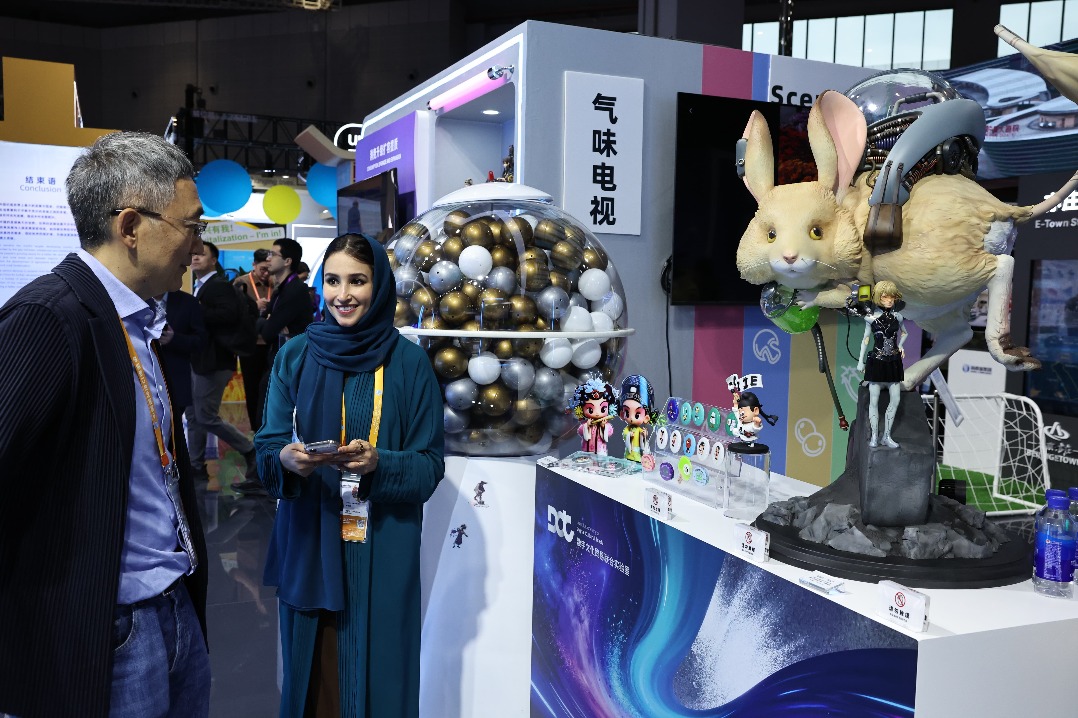Jiangxi pilot zone to lead charge in developing TCM


Local companies ramping up efforts for more important role in sector's growth
Jiangxi province is leveraging its national-level traditional Chinese medicine reform pilot zone to develop its TCM industry, and build up a service system with local characteristics.
During the fight against the COVID-19 pandemic, Jiangxi actively integrated Western medicine and TCM to treat the disease. Among its 930 confirmed cases, 99.9 percent were cured, and TCM participated in 98.4 percent of the cases. A total of 26 TCM emergency research projects were launched.
Jiangxi was approved as the national TCM reform pilot zone in 2018. For nearly three years, Jiangxi has constantly accelerated the development of the TCM service system. It has been exploring new paths and development models of TCM to build a system with local characteristics.
Xiong Mingfeng, deputy director of the Hongdu Traditional Chinese Medicine Hospital in Nanchang, said, "Jiangxi is building a comprehensive TCM service system, to balance TCM resources and make the service available to the grassroots-level areas in the province."
The quality of Chinese medicinal materials directly influences the development of the local TCM industry. "In order to promote the intensive, large-scale and standardized cultivation of authentic Chinese medicinal materials, we have built a demonstration planting base through cooperation with enterprises, farmers and cooperatives," said Hu Caihong, head of the Zhangshu TCM administrative bureau in Jiangxi.
Data from the local government showed that currently, Jiangxi has built 15 customized medicinal gardens, 32 provincial-level forest medicinal technology demonstration bases, and formulated and promoted more than 30 medicinal planting standards.
From January to May, the sales revenue of Jiangxi's TCM industry totaled 18.7 billion yuan ($2.9 billion), up 17.74 percent year-on-year. The profit of the industry surged 27.82 percent year-on-year to 2 billion yuan.
Local companies are playing an important role in developing Jiangxi's TCM industry. For example, Jinggangshan, Jiangxi province-based Prozin Co Ltd invested over 60 million yuan into over 30 national scientific research projects, 48 new drug research projects and four national new drug clinical research projects.
It has undertaken more than 20 national-level TCM projects and 28 provincial-level scientific and technological projects, obtained more than 100 scientific research achievements and more than 60 national invention patent authorizations, and developed a series of original TCM.
Currently, the company's annual sales revenue totaled 760 million yuan, among which 5 percent will be used in TCM research and development every year.
Xiao Junping, chairman of Prozin, said: "Instead of simple medicinal materials trade, we focus on TCM innovations. To develop China's TCM industry, we follow the path from traditional Chinese medicine to modern Chinese medicine and then scientific Chinese medicine."
"In the coming years, we plan to enlarge the production and sales scale, build a national technology center and a digital production base, and prepare the initial public offering," he said.
Jiang Zhong Food Therapy, a Gongqingcheng, Jiangxi province-based company that integrates TCM with food therapy, invested 2 billion yuan to build a large industrial base.
Currently, the first phase of the project-two cookie production lines and seven rice cereal production lines-was completed, and the output value surpassed 2.5 billion yuan. It is estimated that after the second phase is finished, the whole output value will reach between 5 billion yuan and 6 billion yuan.
The 2021 Shanghai Cooperation Organization Forum on Traditional Medicine was held in Nanchang from July 28 to July 30. During the forum, the Nanchang Initiative on SCO Traditional Medicine Cooperation was passed and issued. According to the initiative, SCO counties are expected to strengthen exchanges and cooperation in traditional medicine within the SCO framework and continue to hold the SCO Forum on traditional medicine.
Ying Jiong, deputy director of the administrative committee of Ganjiang New Area in Jiangxi, said: "Ganjiang New Area has been attaching great importance to TCM development, and has built a TCM scientific innovation city. Currently, the TCM scientific innovation city has basically formed a complete industrial chain integrating medicinal planting, extraction, preparations, finished drug packaging, medical equipment, pharmaceutical third-party logistics and terminal medical testing."
"With technical bottlenecks, we are now promoting the application of new technologies such as smart manufacturing, virtual reality, industrial design, big data and the internet of things to better develop the region's TCM industry," he said.




































